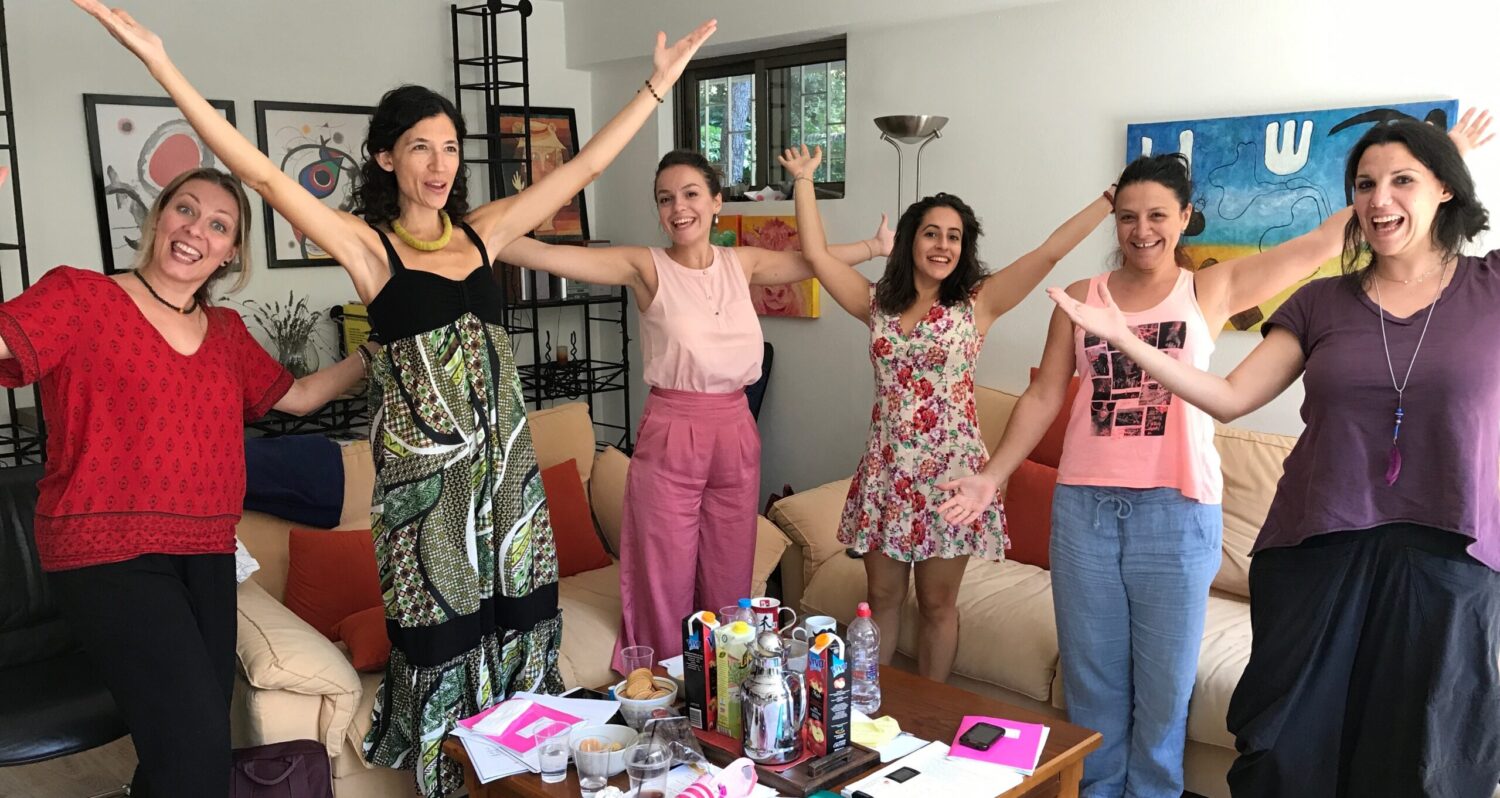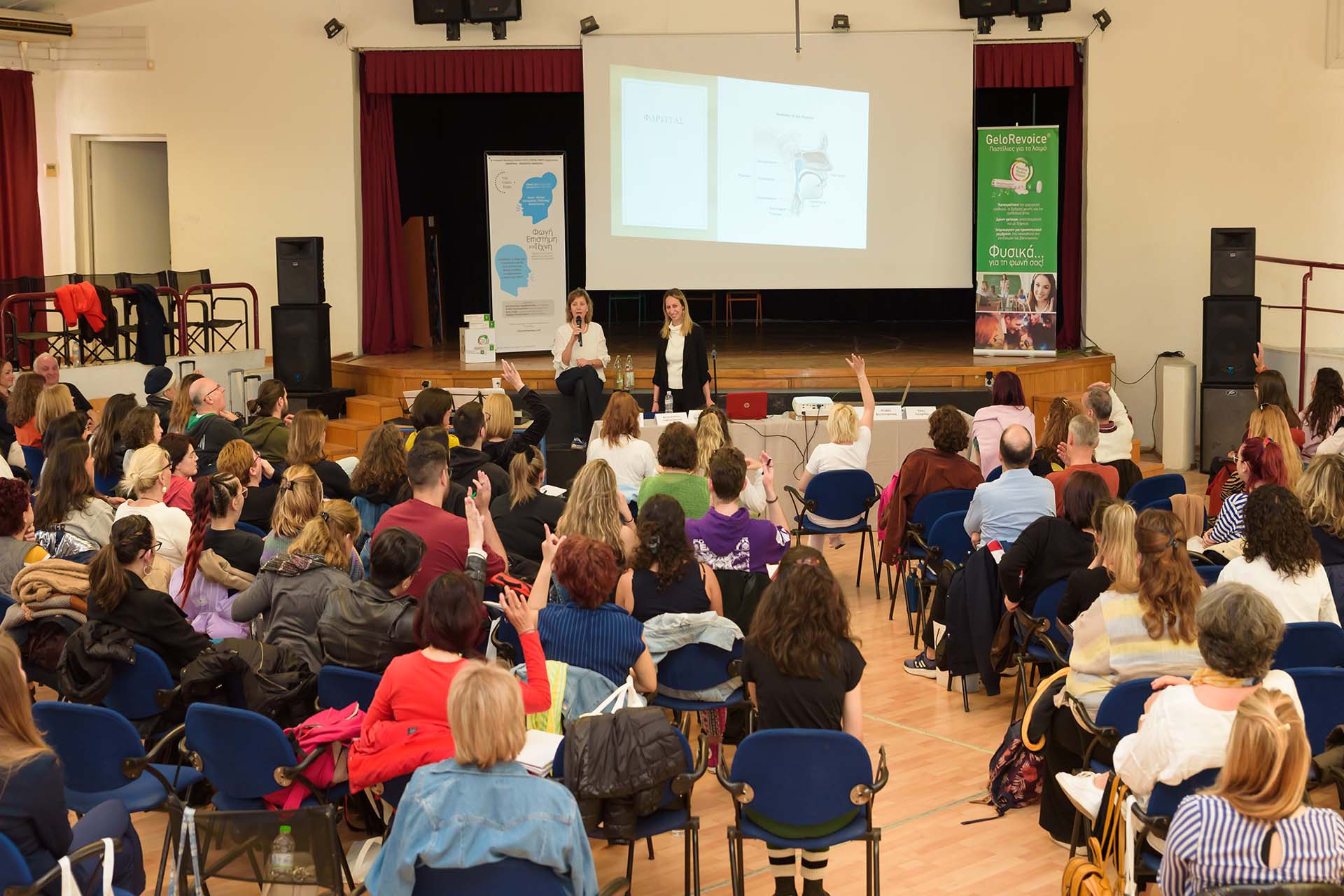Workshop Content
Comprehensive, hands-on training workshops designed for speech therapists, singers, and voice coaches to build expertise in the Integrated Voice Therapy approach.
Dates for SLT Workshop : Now scheduling for 2026
Dates for Singers Workshop : Now scheduling for 2026
Training Webinars for Voice Specialists (English)
Integrated Voice Therapy Training workshops aim to train graduate speech therapists, training ENT doctors, singers and voice coaches in the principles of applied Voice Therapy techniques, either for clinical rehabilitation of the voice (speech therapists) or artistic voice training (singers and voice coaches).
The training is practical, comprehensive and is developed in 3 levels, over the three x 2-day on-line webinars.
Webinar group sizes are limited to 12 participants so that the practical nature of the training is secured with 1-1 and team practice!
The dates and times of each workshop are commonly Friday-Saturday , 10.00-17.30. Dates and times can be modified to suit the specific circumstances of each group (eg. Thursday-Friday, instead or Friday -Saturday)
Each level is complete with:

What the Integrated Voice Therapy training workshops lead to
The techniques developed within the framework of the three levels (1,2,3 ) constitute a comprehensive and holistic person-centered approach to the training of the developing Voice Specialist.
The Integrated Voice Therapy approach brings together information and techniques from a broad spectrum of disciplines. The Mind-Body-Emotion viewpoint of the voice considers the total person in both the therapeutic and the artistic application of the work.
Basic Principles of the Integrated Voice Therapy training workshops
The IVT approach to voice rehabilitation considers the person through the prism of the dynamic interplay between the Mind-Body-Emotion synergy. Dysphonic problems are considered as an imbalance of this synergy. Voice therapy aims at rebalancing the total person.
The person with voice difficulty is trained for mechanical mastery of a wide range of options for safe and efficient voice use. The person in trained to become mindful of all three parameters of voicing – the Mind and how the body is trained to deliver actionable habits, Emotions and the interplay with the mind – body connection, the Body and total bio-mechanical control of the physiology of the voicing mechanism.
At the level of the Body, the learner masters how to detect and physically manage the sensations created at various parts of the body. Mechanical expertise of the vocal mechanism is achieved with modified versions of the biomechanical techniques developed by Jo Estill and Alison Bagnals’ Voicecraft approach.
At the level of the Mind, the learner becomes aware of subconscious instructions that manifest as habitual movement patterns and learns how to redirect and reorganize these habits. Principles of learning theory are applied to understanding the clinical application of the techniques.
At the Emotional level, the person becomes aware of the emotional patterns related to both the mind and body aspects of the voice. The approach to emotional aspects of vocal difficulty is informed by developments in the scientific filed of affective neuroscience.
As a result of the training, voice production becomes predictable, easy and safe! It is no longer a function of the body that is beyond the person’s control, it is no longer unsafe or mysterious. Is is fun and is recognized by the learner as a tool with which s/he can listen to what the self needs in order to remain in balance!


